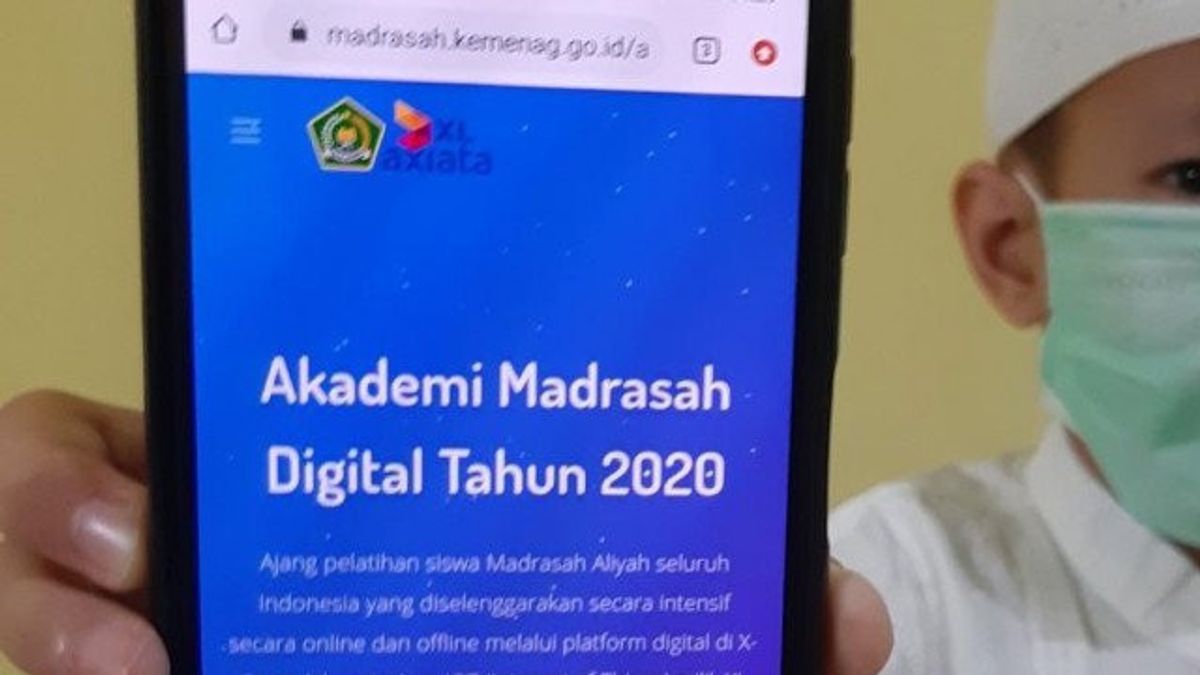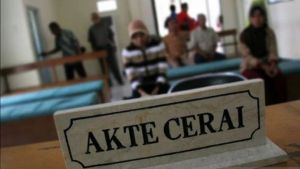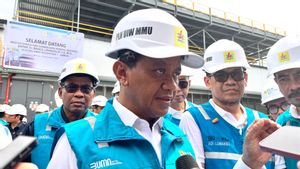JAKARTA - Digitalization is not selective. However, everything will be digital in time.
This includes Islamic Schools (madrasa). The Ministry of Religion (Kemenag) has even prepared a budget for Madrasa Affirmation Assistance up to IDR 399.9 billion which is implemented through the Realizing Education's Promise Madrasah Education Quality Reform Program. This budget is earmarked for 2.666 madrasas in various provinces.
Director-General of Islamic Education M Ali Ramdhani said each madrasa in the program received assistance of IDR 150 million last year.
According to the man who is familiarly called Dhani, the assistance was given to madrasas that had implemented the Madrasah Self Evaluation (EDM) system and the e-RKAM system (Electronic-based Madrasah Work Plan and Budget) which had been trained in 2020 and began to be applied last year.
"The assistance is given in the form of cash with an emphasis on utilization, which must be based on the urgent needs of the madrasa, which are formulated based on the results of the EDM and according to the technical guidelines stipulated," said Dhani as quoted by Antara, Saturday, February 5.
Director of Curriculum, Facilities, Institutions, and Student Affairs (KSKK) Madrasah M Isom Yusqi added that the assistance is expected to be used in order to strengthen the digitalization of madrasas.
Besides that, it can also improve the quality of sanitation, and other program needs in order to support the quality of learning in madrasas in the digital era.
Isom admits that the provision of affirmation assistance has not been able to target all madrasas. This is due to the limited budget of the Ministry of Religion.
In terms of reporting, his party has implemented the e-RKAM system as an e-planning and e-budgeting madrasah platform, so that accountability for aid reporting can be guaranteed.
Isom Yusqi explained that the madrasa digitization program had been carried out since 2019 or before the pandemic.
A number of programs have been carried out, including revising the technical guidelines for the relaxation of the use of BOS funds so that they can be used to support the online learning system.
Another effort is to provide assistance in procuring servers and CBT (Computer Based-Test) Computer Networks for all levels, be it Madrasah Aliyah, Tsanawiyah, or Ibtidaiyyah.
The budget for this assistance is admittedly not much, even very limited. In 2021 alone, for example, the quota for recipients of this assistance is 200 Madrasah Aliyah, 250 Madrasah Tsanawiyah, and 100 Madrasah Ibtidaiyah.
Since 2019, the Ministry of Religion has also provided assistance for the development of State Madrasahs through SBSN (National Sukuk) funds.
One of the uses of this assistance is to support the implementation of digital classes. Until this year, state madrasah development assistance through SBSN is still ongoing.
During the pandemic, the Ministry of Religion even accelerated the digitization of madrasas through a number of programs including the madrasa digital book program where students can read and download books for free through the https://madrasah2.kemenag.go.id/buku/ page.
There is also Madrasah E-learning, in collaboration with Google (Google for Education), providing google classroom, google meet, and others, as well as providing unlimited storage for teachers and madrasa students.
Then the Affordable Quota Assistance program, in the form of cheap internet quotas for teachers, students, and madrasah employees. Cooperating with four providers (Telkomsel, XL Axiata, Indosat Ooredoo and Tri).
Then free access to the Dragonlearn.org Learning Platform, the online New Student Registration Service (PPDB) for all madrasas throughout Indonesia, to the initiation of the Achievement Independent Madrasah Movement to raise donations for used Smart Phones suitable for use for students who do not have learning devices.
Furthermore, in an effort to expand the digitalization of madrasas, a number of parties were involved including giving appreciation through the Digital Madrasa Innovation Award.
This effort has been carried out in several areas including East Java and also in West Java by involving Infradigital edu-tech start-ups with the Regional Office of the Ministry of Religion of West Java Province.
The Madrasa Innovation Award also aims to accelerate and equalize the digitalization of madrasas, including in West Java.
In the future, this program will run in 15 cities/regencies in West Java in 2022 and 12 cities/regencies in West Java in 2023.
The Acting Head of the Regional Office of the West Java Ministry of Religion, Yusuf Umar, explained that there are 7 priority programs of the Ministry of Religion, one of which is digital transformation.
The government really wants madrasas not to just go along with it, although in the implementation of these activities many are not in accordance with the initial goals of digital madrasas, but he hopes that in the future the quality of the program will continue to be improved until it meets the expected goals.
The English, Chinese, Japanese, Arabic, and French versions are automatically generated by the AI. So there may still be inaccuracies in translating, please always see Indonesian as our main language. (system supported by DigitalSiber.id)













